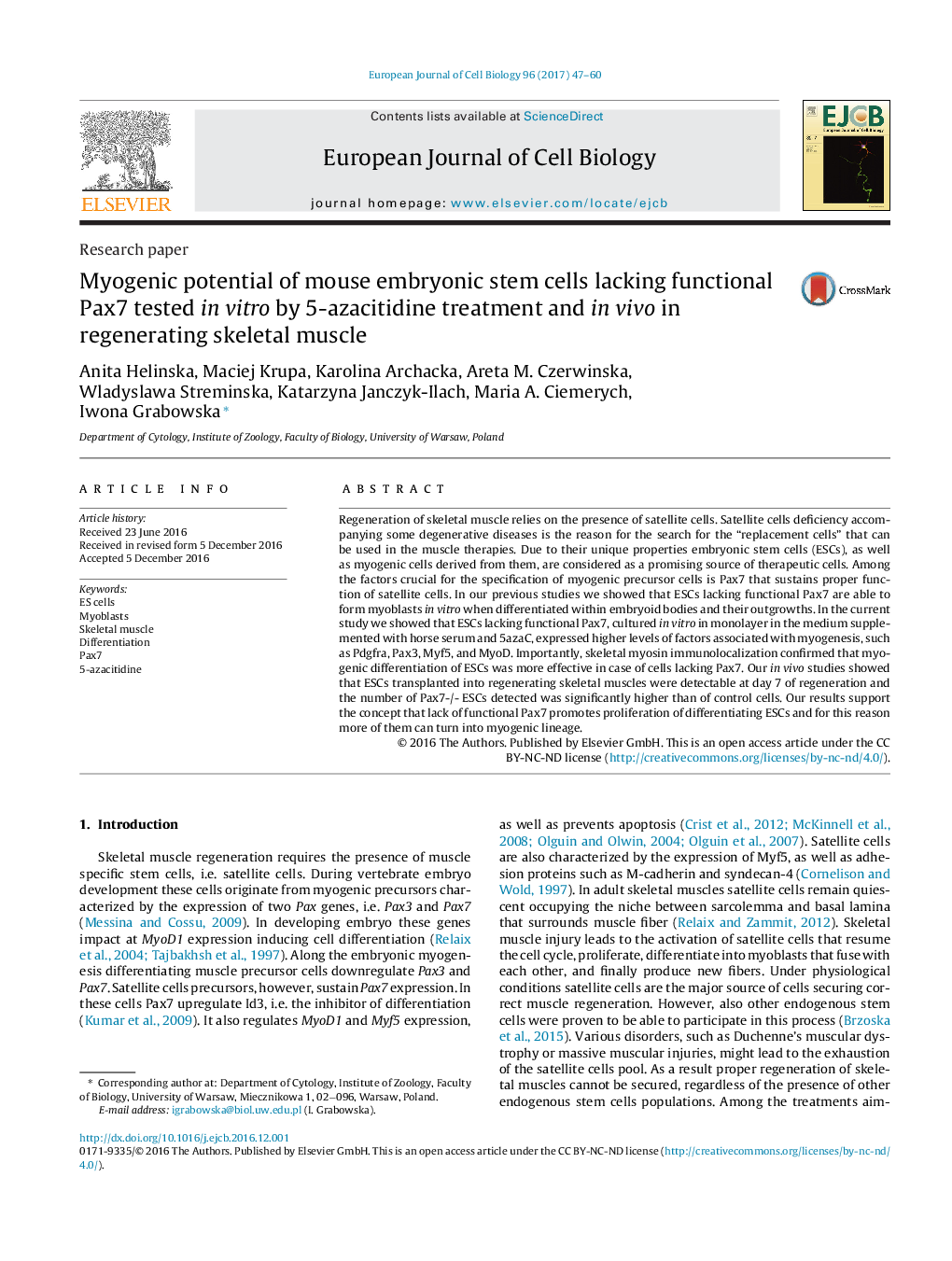| Article ID | Journal | Published Year | Pages | File Type |
|---|---|---|---|---|
| 5532178 | European Journal of Cell Biology | 2017 | 14 Pages |
â¢ESCs lacking Pax7 expressed higher levels of factors associated with myogenesis.â¢In vivo Pax7-/- ESCs more efficiently colonized skeletal muscle than control ones.â¢Differentiating Pax7-/- ESCs are more prone to initiate myogenic differentiation.
Regeneration of skeletal muscle relies on the presence of satellite cells. Satellite cells deficiency accompanying some degenerative diseases is the reason for the search for the “replacement cells” that can be used in the muscle therapies. Due to their unique properties embryonic stem cells (ESCs), as well as myogenic cells derived from them, are considered as a promising source of therapeutic cells. Among the factors crucial for the specification of myogenic precursor cells is Pax7 that sustains proper function of satellite cells. In our previous studies we showed that ESCs lacking functional Pax7 are able to form myoblasts in vitro when differentiated within embryoid bodies and their outgrowths. In the current study we showed that ESCs lacking functional Pax7, cultured in vitro in monolayer in the medium supplemented with horse serum and 5azaC, expressed higher levels of factors associated with myogenesis, such as Pdgfra, Pax3, Myf5, and MyoD. Importantly, skeletal myosin immunolocalization confirmed that myogenic differentiation of ESCs was more effective in case of cells lacking Pax7. Our in vivo studies showed that ESCs transplanted into regenerating skeletal muscles were detectable at day 7 of regeneration and the number of Pax7-/- ESCs detected was significantly higher than of control cells. Our results support the concept that lack of functional Pax7 promotes proliferation of differentiating ESCs and for this reason more of them can turn into myogenic lineage.
Graphical abstractDownload high-res image (197KB)Download full-size image
